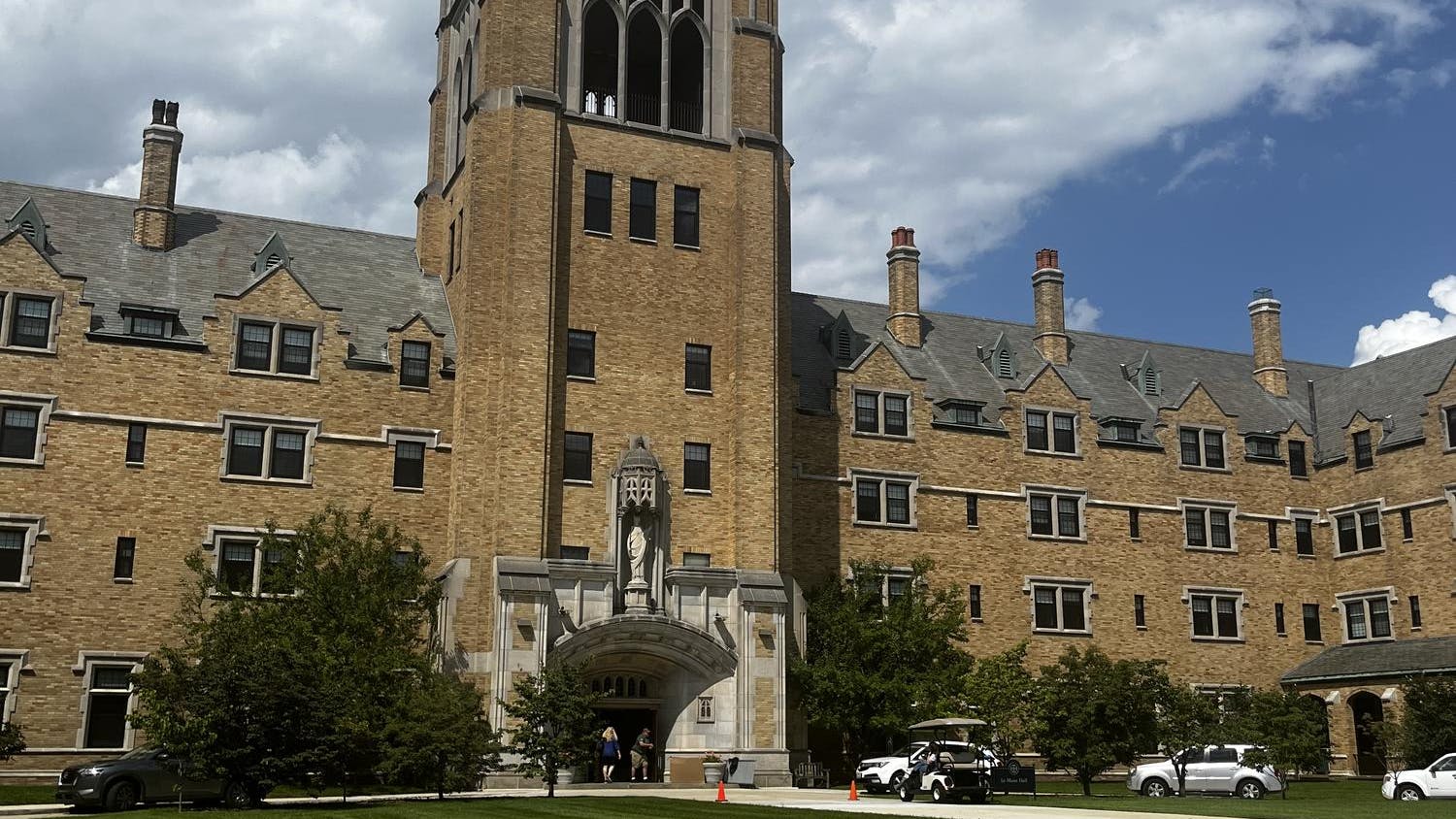Computer science professor Kevin Bowyer received the 2014 Institute of Electrical Engineering and Electronics (IEEE) Computer Society’s Technical Achievement Award for his research in the field of biometrics.
Bowyer said he and his group of student researchers work in facial recognition technology, focusing on “using infrared imaging and 3-D imaging as well as using regular pictures like you would take with a normal camera you’d get from Best Buy, or with your phone.”
Bowyer said he is researching iris-recognition technology over retina-recognition technology for the former’s practicality and reliability.
“The iris is the muscle that controls the size of the pupil, how much light gets in,” he said. “With the retina you have to get up really close [and] shine a light through the small hole in the eye to get a picture of the back into the eyeball. … Another thing we have been involved in ... is this idea that if you start using the iris-imaging to recognize somebody — so you sign up and you enroll in a system to get into your bank account with [your] iris — that the quality of the match [does] not degrade over time.”
Bowyer said he and his team perform their research by using digital mapping as opposed to photographic recognition.
“One of the things that comes up often is the idea of using the 3-D shape of the face as a way of recognizing a person,” he said. “Think of an Arnold Schwarzenegger science fiction movie or something where they sweep a light beam over the face to get the shape of a face. It’s a high-tech and a bit of a ‘science fiction-y’ idea.
“But the thought is that the 3D shape is not so much affected by lighting. If you’re standing under a light or if you have light coming at you from the side ... then it would look different than it would normally. If you used a 3-D shape center, lighting wouldn’t impact it, and if you look at the face from the side, you can still get information about the face.”
Bowyer said his research has been influenced by the Boston Marathon bombing that took place April 15, 2013.
“There were all these spectators that were taking all these pictures,” he said. “There were all these businesses taking video. There was no shortage of images and no shortage of videos and images that had the people in it. But face recognition technology did not really help solve the crime … and the government recognized that.”
In the future, the United States may fall behind in facial recognition technology, Bowyer said.
“The country that’s probably leading the world in applied biometric recognition technology is the country of India,” he said. “They have an ambitious program where they are going to get all of their 1.3 billion citizens a biometrically-enabled government I.D. … The rest of the world would de facto use the technology … and the U.S. will have to play catch-up with the rest of the world.”













